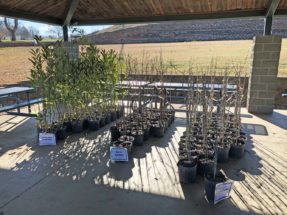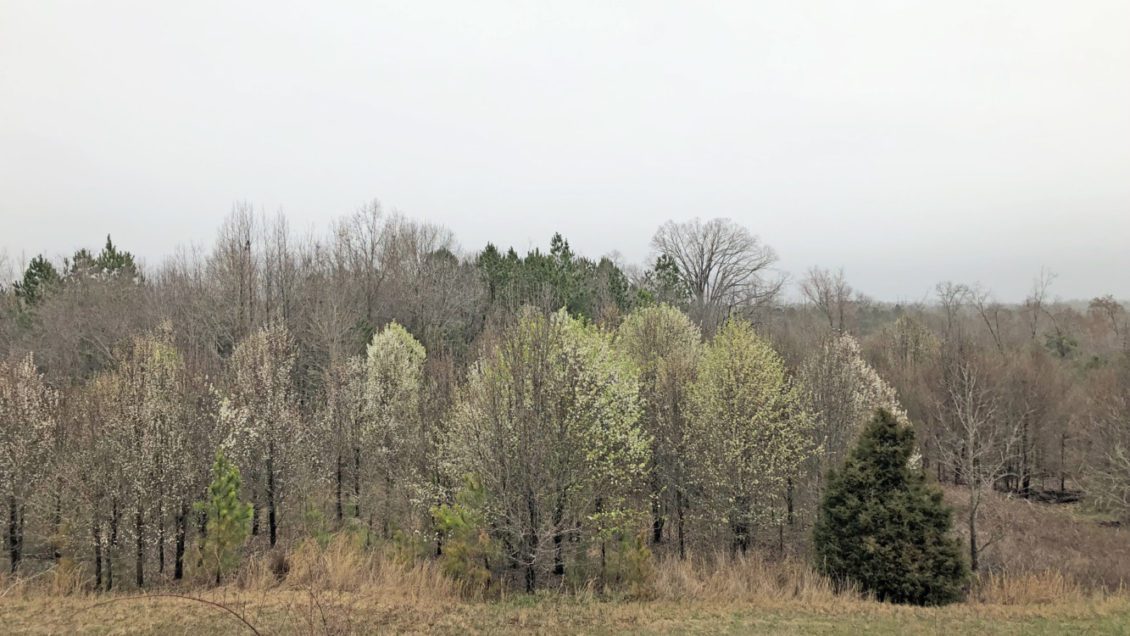Beauty is in the eye of the beholder, and Clemson University forest health specialist David Coyle says the damage wrought by the invasive Bradford pear tree far outweighs the allure of its white blossoms and shapely foliage.

Through its Bradford Pear Bounty program, Clemson Cooperative Extension is partnering with the South Carolina Forestry Commission, City of Clemson, City of Sumter and Duke Energy for upcoming events Feb. 27 in Sumter and March 13 in Clemson that give property owners the opportunity to exchange up to five Bradford pear trees for an equal number of free, native, young replacement trees.
“Bradford pears are common all over the Southeast; they’ve been planted for several decades now because they’re very pretty in the spring with those white flowers and sort of perfect lollipop-shaped green canopy,” said Coyle, an assistant professor in Clemson’s Department of Forestry and Environmental Conservation. “But they were once touted as sterile, and they’re actually not entirely sterile. If pollen from any other Pyrus species gets into that flower, it can make a viable seed.”
Those seeds are eaten by birds and spread across the southeastern landscape, contributing directly to one of the worst invasive plant species in the region — the Callery pear.
Not only do Callery pears have nasty thorns that can damage everything from tractor tires to livestock, but the damage they do to the ecosystem by crowding out native plants while providing little to no food for insects is just as bad.
In 2020, the first Bradford Pear Bounty was held at Clemson’s Nettles Park and over 260 healthy, native trees were doled out to replace Bradford pears in the city. On the heels of that success, Coyle said the decision was made to add a second location in South Carolina this year.

“Last year’s event went great. We had a lot of interest, and everyone who came had positive things to say,” Coyle said. “Many people reached out to ask if it would be done again this year, and that was part of the reason we added a second city: because we had so much interest from all over the state.”
Coyle said a primary motivation for the event is to raise awareness around South Carolina of the invasive species and its harmful effects.
“We’re trying to get people to plant more native things in their yards that won’t become invasive on the landscape,” Coyle said. “If you want something with pretty flowers in the spring, there are plenty of native options. If you want bright red foliage in the fall, there are native trees and shrubs with awesome-looking fall foliage, too.
The event in Sumter is set for Swan Lake Iris Gardens Heath Pavilion, located at 150 Garden St., while the event in Clemson will again be held at Nettles Park, 102 Nettles Park Road. Both are slated from 9 a.m.-noon.
Social distancing protocol will be followed for these outdoor events, which will be held rain or shine. Please prepare to have face covering at all times while in the Bradford Pear Bounty venue, remain at least 6 feet from others and use hand sanitizer upon entering the venue.
Criteria for participation in the program are:
• Pre-registration is required.
• Only the property owner can register and get the trees.
• Take a photo of yourself with the cut tree (a selfie, if you will) and bring it to the exchange event.
• Replacement trees will be distributed on a first-come, first-served basis while supplies last. If your preferred replacement tree is not available at time of distribution, you will be provided with a healthy alternative. Specific tree species cannot be reserved ahead of the event.
Get in touch and we will connect you with the author or another expert.
Or email us at news@clemson.edu

